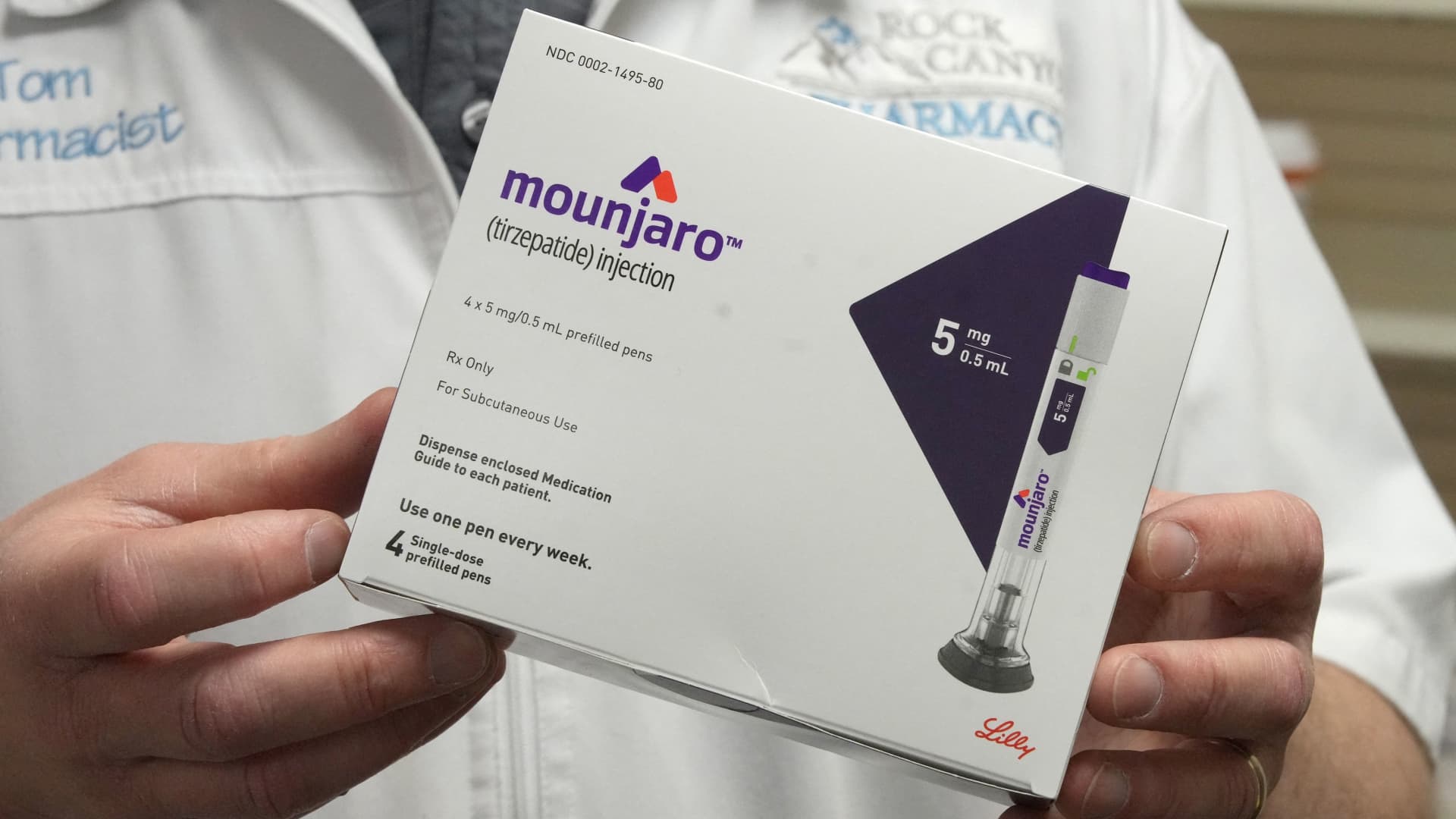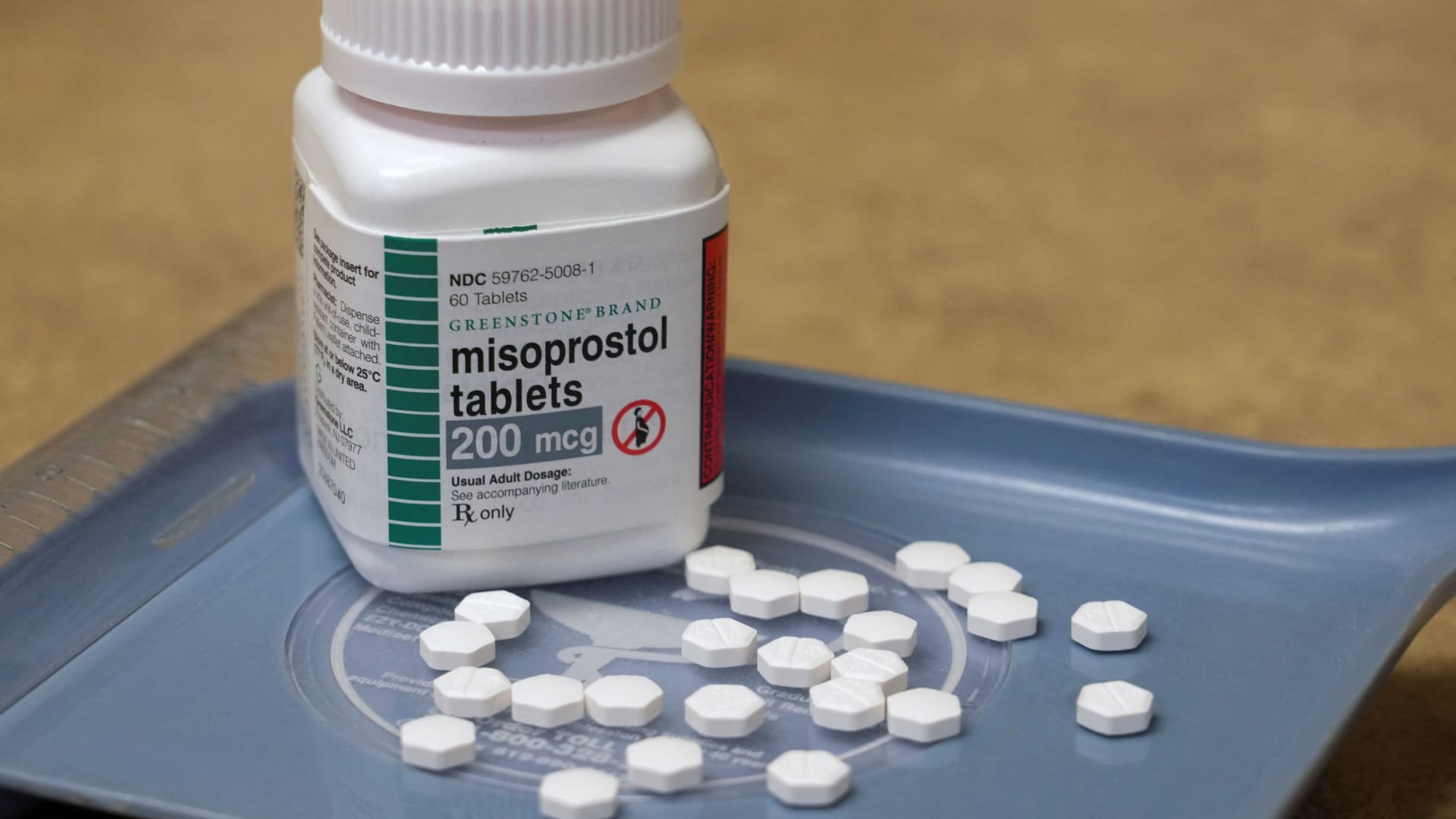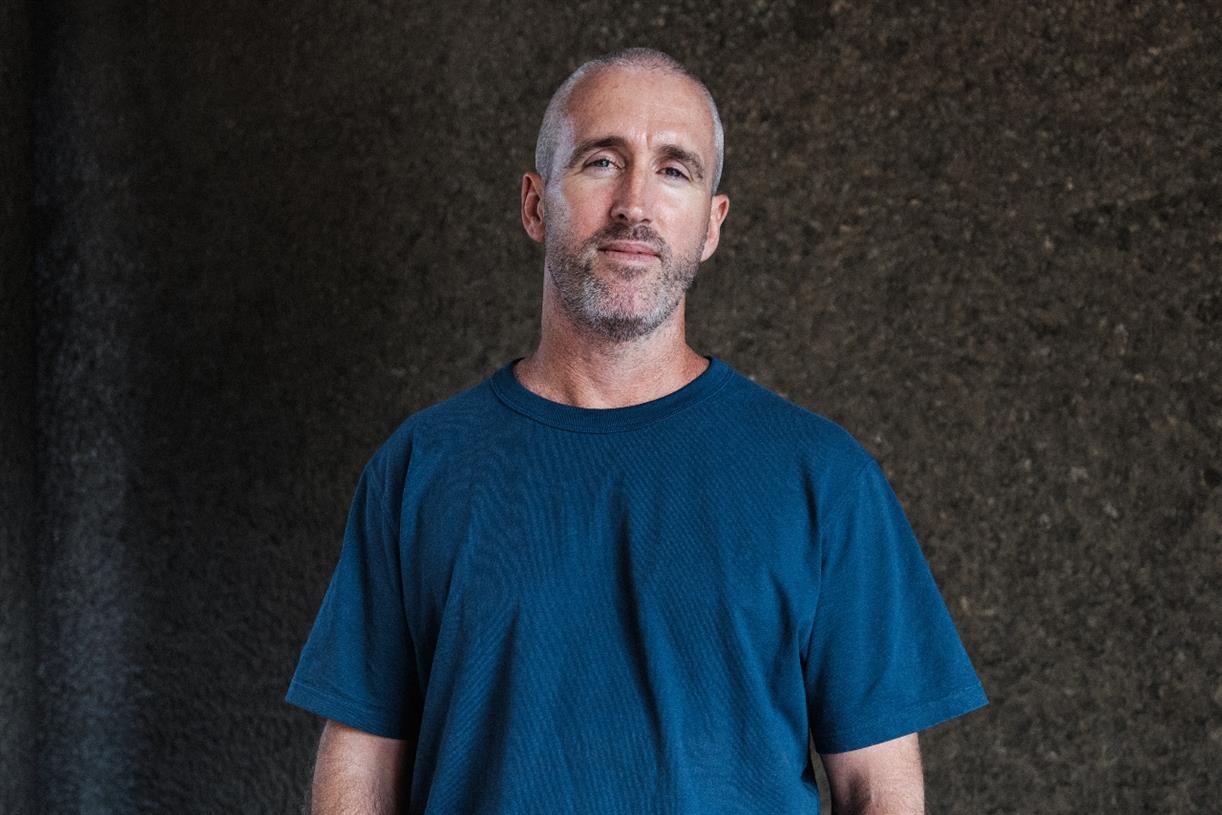Eli Lilly says obesity drug tirzepatide resulted in weight loss of up to 34 pounds
Eli Lilly plans to complete its application for FDA approval of tirzepatide in the coming weeks and expects regulatory action as early as later this year.

A pharmacist displays a box of Mounjaro, a tirzepatide injection drug used for treating type 2 diabetes and made by Lilly at Rock Canyon Pharmacy in Provo, Utah, May 29, 2023.
George Frey | Reuters
Patients who took Eli Lilly's weight loss drug tirzepatide lost up to 34 pounds on average, or 16% of their body weight, the company said in clinical trial results released Thursday.
Eli Lilly plans to complete its application for Food and Drug Administration approval of the drug in the coming weeks and expects regulatory action as early as later this year. The FDA approved tirzepatide for Type 2 diabetes last year, but the drug is not cleared for weight loss.
The approval would open "up the opportunity for many more people to benefit from tirzepatide," Eli Lilly CEO David Ricks said Thursday on CNBC's "Squawk Box." He added that the drug sets a "new bar for weight loss and people with diabetes."
The data come as companies try to capitalize on increased consumer demand for weight-loss treatments. Some experts have criticized the increased use of the drugs as a potentially damaging extension of diet culture.
The phase three trial followed 938 adults who were overweight and had type 2 diabetes. Patients who took a 10 milligram version of the injection after 72 weeks lost nearly 30 pounds on average, while those who took 15 milligrams lost 34 pounds on average.
Patients in the placebo group who did not take the pill lost an average of seven pounds.
About 86% of patients in the trial who took tirzepatide lost at least 5% of their body weight, compared to about 30% in the placebo group
The level of average weight loss seen in the trial "has not been previously achieved in phase 3 trials for obesity or overweight and type 2 diabetes," Jeff Emmick, Eli Lilly's senior vice president of product development, said in a statement.
Tirzepatide also reduced levels of A1C, which measures the body's average blood sugar level over the past three months. Higher levels of A1C are associated with a higher risk of diabetes complications.
Eli Lilly said it will continue to monitor results from the trial. The company will present the findings at a medical conference in June and submit the research to a peer-reviewed journal.
Drugs like tirzepatide and rival Novo Nordisk's Ozempic and Wegovy catapulted to the national spotlight in recent years for being weight loss "miracles."
Social media influencers, Hollywood celebrities and even billionaire tech mogul Elon Musk have reportedly used the popular injections to get rid of unwanted weight.
But experts say the medicines may further perpetuate a dangerous diet culture that idealizes weight loss and thinness.
Some patients who stop taking the drugs also complain about a weight rebound that is difficult to control.
Tirzepatide works by mimicking two naturally produced hormones in the gut called GLP-1 and GIP. The hormones signal to the brain when a person is full, suppressing their appetite.
Ozempic and Wegovy only target GLP-1. Patients who took Ozempic in a 2021 clinical trial lost nearly 15% of their body weight.
Eli Lilly earlier this month registered a new clinical trial that will pit tirzepatide against Wegovy in 700 patients who have obesity or are overweight with weight-related health conditions. The company expects to complete the study in 2025.

 ValVades
ValVades 































